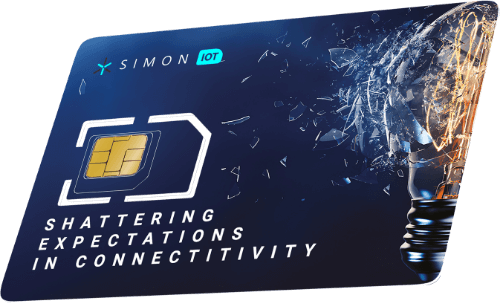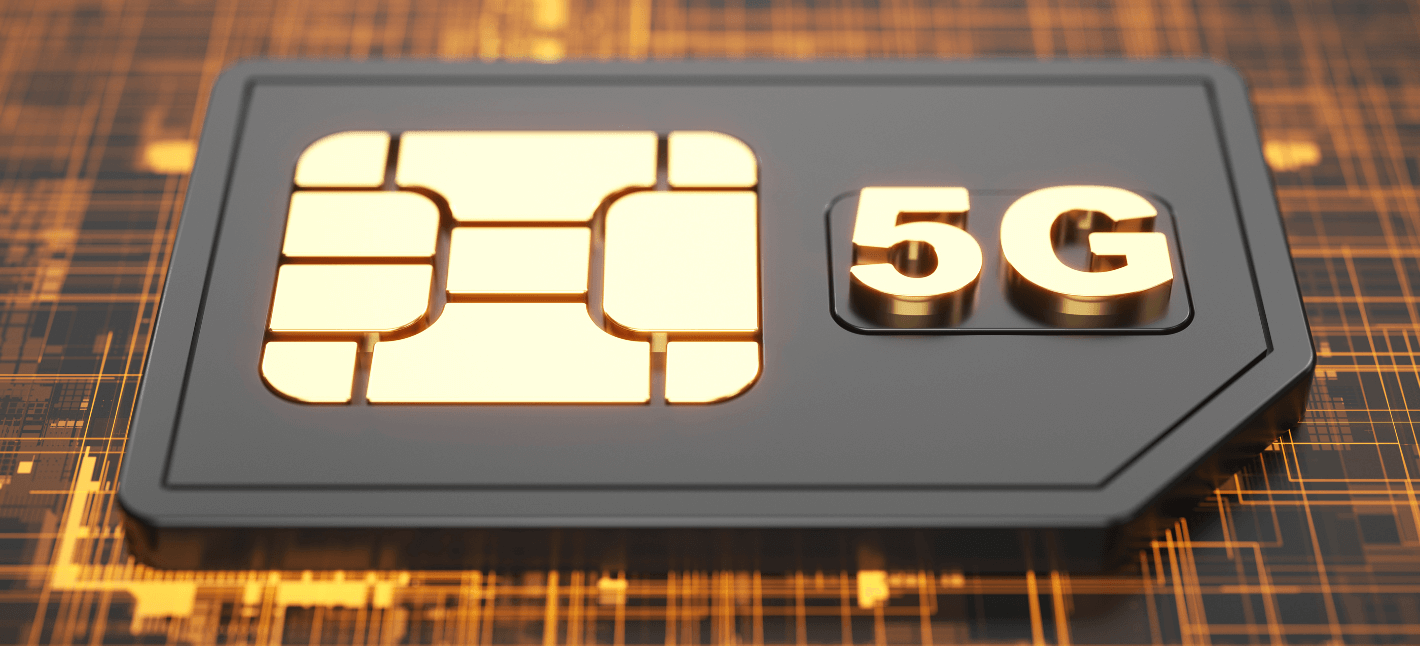Iot Sim Card SIM Card IoT Projects Global Deployments
Iot Sim Card SIM Card IoT Projects Global Deployments
Blog Article
Iot Sim Card Pricing Global IoT SIM Card Multi-Network M2M
The creation of the Internet of Things (IoT) signifies a transformative period in connectivity, and SIM cards play a vital role in facilitating this process. Their operate extends beyond conventional telecommunication; they are a cornerstone for gadget communication throughout numerous purposes. SIM cards, or Subscriber Identity Modules, enable devices to connect to cellular networks, thus permitting seamless data transmission and communication.
In IoT ecosystems, SIM playing cards serve as secure gateways for units to work together with cloud providers and analytics platforms. Each SIM card offers a unique identification to the IoT device, authenticating it throughout the cellular network. This id is important for guaranteeing that only approved gadgets can connect and communicate, thereby elevating the general security of the IoT framework.
The telecommunications business has developed significantly to help the burgeoning IoT market. Now, SIM playing cards usually are not only bodily embedded but also designed as eSIMs, or embedded SIMs. These trendy options allow units to change networks without having to replace the card bodily. This flexibility is vital for IoT applications which will require community changes or adjustments primarily based on geographic areas or service requirements.
Cheapest Iot Sim Card IoT SIM Card Connectivity
The scalability offered by SIM playing cards can be noteworthy. IoT deployments can initially start with a quantity of devices and easily broaden to thousands. Each of these units can independently connect with the network via its SIM card, enabling seamless integration and administration. This scalability is key for industries adopting smart technologies, such as smart cities, agriculture, logistics, healthcare, and manufacturing.
Furthermore, the role of SIM cards in international IoT connectivity can't be understated. With the advent of roaming agreements and multi-network SIMs, devices can keep linked even when transferring across geographic boundaries. This capability is particularly useful for functions involving logistics tracking, environmental monitoring, and fleet management, where units might journey throughout cities or international locations.
Moreover, the mixing of SIM cards with IoT platforms facilitates real-time monitoring and management. For occasion, smart meters geared up with SIM cards can transmit knowledge back to utility suppliers, permitting for higher useful resource administration and extra correct billing. Since these meters are linked continually, they supply invaluable information that may help in optimizing operations.
Does Nb-Iot Need A Sim Card Smart IoT SIM Cards
The security of IoT units is one other important side where SIM playing cards shine. With embedded security features, SIM cards are integral to protecting sensitive info. They supply encryption and safe authentication strategies that safeguard information being transmitted over cellular networks. This side is especially necessary, given the rising issues over cyber threats focusing on linked gadgets.
Additionally, the type of SIM card chosen can greatly have an effect on an IoT deployment. Various options exist, including standard SIMs, micro-SIMs, and eSIMs, every with its personal set of advantages. Depending on the application, selecting the right type can impact a tool's efficiency and connectivity reliability. eSIMs stand out by permitting a quantity of profiles to be saved, making them appropriate for units which may switch between different service providers or geographical areas.
Iot Sim Card Providers IoT SIM vs Normal SIM
In phrases of value, SIM playing cards contribute to optimizing bills in an IoT ecosystem. The availability of varied subscription fashions, together with pay-as-you-go and month-to-month plans, allows businesses to tailor their spending according to usage. This flexibility enables firms to handle prices extra effectively and scale operations as necessary without incurring prohibitive charges.

Collaboration between varied sectors and stakeholders enhances the function of SIM playing cards in IoT connectivity. Network suppliers, system manufacturers, and application developers work hand in hand to create ecosystems that maximize the potential of IoT functions - Does Nb-Iot Need A Sim Card. This collaborative strategy leads to standardized practices that simplify the complexity typically associated with managing massive networks of related gadgets.
As industries proceed to depend more and more on IoT solutions, the demand for dependable connectivity will only develop. SIM cards will remain central to attaining this connectivity, ensuring that gadgets can communicate effectively, securely, and cost-effectively. The future landscape of expertise relies closely on the backbone that SIM playing cards provide for seamless data transfer.

The evolving panorama of IoT also brings forth distinctive challenges. As more devices hook up with networks, issues like community congestion and latency may come up. Strategic planning around the number of SIM cards and connectivity choices can mitigate these challenges, ensuring that gadgets maintain optimum performance ranges, no matter demand.
Iot Sim Card copyright IoT SIM cards
Furthermore, the event of narrowband IoT (NB-IoT) and LTE-M networks shows how cellular expertise is evolving to support particular IoT wants. These new technologies aim to reinforce the efficiency and efficiency of connected devices while providing better protection and lower energy consumption. The adaptation of SIM cards to those networks is essential for making essentially the most of the transformative energy of IoT.
In conclusion, the role of SIM playing cards in IoT connectivity goes past primary information transmission. They enable safe, dependable, and efficient communication amongst an ever-increasing number of related gadgets. As the IoT landscape continues to evolve with subtle technologies and global connectivity needs, SIM playing cards will undeniably remain a elementary issue ensuring the success and proliferation of IoT functions. The way forward for IoT hinges on the capabilities that SIM cards present for enabling innovation and connectivity in a rapidly changing world.
Iot Sim Card copyright The Ultimate Guide IoT SIM Cards
- SIM cards function the first identification mechanisms for IoT units, enabling safe communication across networks.
- They permit real-time data transmission, crucial for functions such as smart cities and industrial automation.
- With embedded SIM (eSIM) know-how, gadgets can switch networks digitally with out the necessity for physical card replacements, enhancing flexibility.
- SIM playing cards support over-the-air (OTA) updates, which are important for sustaining device software integrity and safety.
- Multi-IMSI SIM playing cards can allow units to function on a quantity of networks, optimizing connectivity and reducing downtime.
- They facilitate machine-to-machine (M2M) communication, which is prime for automated companies in various industries.
- Enhanced security measures in SIM playing cards defend sensitive knowledge transmitted between IoT units and cloud companies.
- SIM playing cards enable scalability in IoT deployments, allowing businesses to effectively manage large fleets of units.
- They play a crucial function in sustaining connection stability, ensuring that IoT devices remain online and useful.
- SIM playing cards contribute to price administration in IoT projects by facilitating data plan selection tailored to specific connectivity wants.
What is a SIM card and why is it necessary for IoT connectivity?
A SIM card (Subscriber Identity Module) is a small card inserted into gadgets to authenticate and set webpage up communication on cell networks. In IoT, SIM playing cards facilitate safe and dependable connectivity, enabling gadgets to send and receive data effectively.
How do SIM cards enhance the safety of IoT devices?
SIM cards provide a secure id for units via encryption and authentication protocols. This safeguards knowledge transmission and protects towards unauthorized entry, making IoT methods more resilient towards cyber threats.
Nb Iot Sim Card IoT SIM card Knowledge Base
What types of SIM cards are used in IoT applications?
IoT applications commonly use standard SIMs, embedded SIMs (eSIMs), and remote SIMs (rSIMs). eSIMs are notably useful for IoT because of their capability to be remotely programmed, allowing for flexibility and scalability in managing system connections.
Can IoT units operate without SIM cards?

Yes, IoT devices can operate without SIM cards by using different connectivity choices like Wi-Fi, Bluetooth, or LPWAN (Low Power Wide Area Network). However, utilizing SIM playing cards permits for higher international protection and mobility.
Iot Single Sim Card Ruggedized IoT SIM eSIM
How do SIM cards help in managing large-scale IoT deployments?
SIM cards enable centralized management of devices through cellular network operators. This permits for streamlined provisioning, monitoring, and updates, making it simpler to handle large-scale IoT deployments successfully.
What are the price implications of utilizing SIM cards in IoT connectivity?
While SIM cards incur costs related to knowledge plans and management, they offer value through enhanced connectivity, security, and scalability. More hints Understanding the pricing models can help organizations budget efficiently for IoT implementations.
Sim Card Iot Built For Bigger Internet of Things SIM Cards
What should organizations think about when choosing a SIM card for IoT devices?
Organizations should think about elements similar to network coverage, knowledge plans, compatibility with units, and the level of buyer assist supplied. Evaluating these components helps ensure that the chosen SIM playing cards meet particular IoT software needs.
How does the choice of SIM card have an effect on the overall efficiency of IoT devices?
Iot Sim copyright SIM Providers LTE-M/Nb-IoT Roaming Setup
The alternative of SIM card can significantly impact connectivity reliability, information transfer speeds, and device longevity (Hologram Iot Sim Card). A suitable SIM card enhances gadget performance by guaranteeing stronger signal reception and efficient information management.
Are there any regulatory concerns regarding the use of SIM cards in IoT devices?
Iot Sim Card South Africa IoT SIM Card Global M2M Connectivity
Yes, organizations should adhere to local and worldwide regulations relating to data privacy, security, and telecommunications when utilizing SIM cards in IoT gadgets - 2g Iot Sim Card. Compliance ensures the lawful operation of IoT methods and protects consumer information.
Report this page